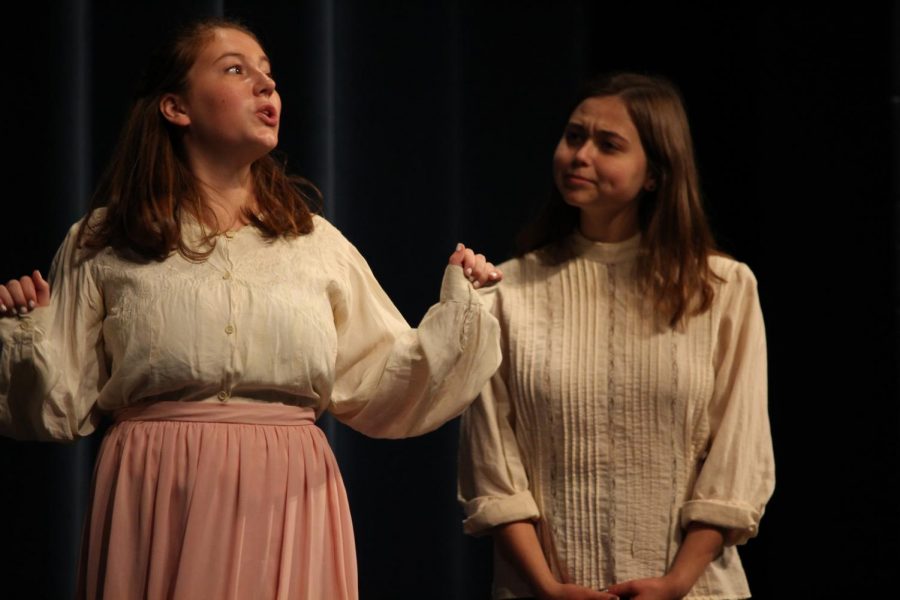Students lead school One Acts
The One Act plays at the beginning of November gave students a chance to immerse themselves in the process of bringing a production to life on a stage. Students had complete control over designing the One Acts and put a lot of effort into getting them ready for a performance in front of an audience.
Production started with on-script rehearsals and gradually progressed until the cast had their lines memorized. After that, students considered it just a matter of getting up on stage and performing it well. Normally, all three are run by students, but this year theatre teacher Mr. Keith Cassidy directed Pvt. Wars. “Most of the time it’s totally student run,” Mr. Cassidy said. “I supervise, I’ll throw in my two cents occasionally.”
The three One Acts this year were a selection from Much Ado About Nothing directed by junior Charlotte Gimlin, The Bald Soprano directed by senior Esteban Marmolejo-Suarez and junior Sara Dabak, and Pvt. Wars directed by Mr. Cassidy. The genres and tones were all very different from each other. The first was an adaptation of a famous Shakespeare play, the second was an absurdist piece, and the third was a compassionate story about injured soldiers.
Many students participated in one or more of the school’s three One Acts. They enjoyed being a part of it for a variety of reasons, especially the excitement of performing and getting to work with other people to put on the shows. “It was mostly me and a bunch of my friends,” senior Nicholas Boone said. “Even if I messed it up or something, my friends were there to comfort me through that and help me through that.”
Another reason One Acts benefited the students was the the leadership roles they provided. Musicals like last year’s Pippin had student actors and technical production (tech) staff, but the big decisions were made by teachers. Dabak ran tech and helped direct the second one act, The Bald Soprano. “I think with this show, it’s been really nice because I’ve been able to take more of a leader role,” she said. “In Pippin I was more of a follower; I was able to contribute ideas, but here it’s more of my decision.”
The freedom of choice offered by the One Acts came with difficulties for the student directors, however. One Acts are considered to be overshadowed by the school musical and play, which means they have fewer resources to work with and their time to prepare is limited. “We had some trouble with lights that meant that kids weren’t allowed to be on stage without adult supervision, and normally we rehearse for a long time,” Gimlin said. “It’s very, very difficult to find an adult who’s willing to stay after school for three hours and sit in the theatre while we try to work.”
In the end, the appeal of One Acts was being able to lead and work with friends, despite dealing with the lack of support, time restrictions or administrative work to manage. Gimlin said, “I’m very proud of all of my actors. It’s been a rough process, and they’ve all done an absolute wonderful job.”














Oliver Walker • Dec 12, 2017 at 4:57 AM
At the present time! Online education is very famous and valued for every beginner who wants to develop his future in a fast time. The student has to enroll in accredited UAE universities and take respected degree program. After exams and finished his/her graduation, they easily get a job in their profession at a big company.